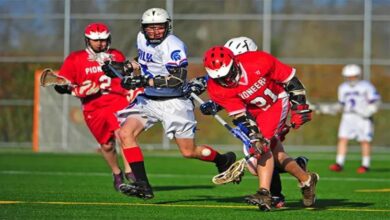Factors that Play a Vital Role in Baseball Computer Picks

Computer-generated choices have revolutionised the world of fantasy sports and baseball betting. These systems evaluate enormous amounts of data and make accurate predictions, sophisticated algorithms, and machine learning. To effectively utilise this technology for betting or fantasy leagues, one must comprehend the factors essential to these decisions. It is a thorough analysis of the main factors affecting computer-generated baseball predictions. Check this to https://www.wunderdog.com/mlb-baseball/picks to know some ideas about Baseball computer picks.
Player Performance Statistics
At the heart of any computer-generated pick system are player performance statistics. These comprise strikeout rates, WHIP (Walks Plus Hits per Inning Pitched), batting averages, on-base percentage, and slugging percentage for pitchers and hitters. Advanced metrics like WAR (Wins Above Replacement) and wOBA (weighted On-Base Average) also provide deeper insights into overall contribution to their teams’ success. Computers analyse these statistics in the context of upcoming matchups to predict potential outcomes.
Historical Matchups and Trends
Historical data on matchups between teams and specific players’ performances against particular opponents or pitchers plays a significant role in computer-generated predictions. Trends, such as a team’s success rate at home versus away games or performance under certain weather conditions, are also factored into the algorithms.
Injuries and Roster Changes
The current status of a team’s roster, including injuries, suspensions, and recent lineup changes, can drastically affect game outcomes. A new player’s entrance or a player’s departure might alter the dynamic within the team. Computer models continuously update their datasets to reflect these changes, adjusting their picks accordingly.
Venue and Home-Field Advantage
The venue of the game is another critical factor. Based on size, altitude, and other features, some ballparks are known to favour hitters or pitchers. Home-field advantage is a well-documented phenomenon in sports, including baseball, where teams can perform better at their home stadium. Computers integrate this data to refine their predictions.
Psychological and Intangible Factors
While more challenging to quantify, psychological and intangible factors like team morale, motivation, and the pressure of playoff races can influence game outcomes. Advanced models attempt to incorporate these elements by analysing game contexts, such as a team’s position in the standings, recent performance pressure, and historical performance in critical games.
Umpiring Crews
The composition of the umpiring crew can influence a game’s outcome, especially given individual umpires’ tendencies and strike zones. Sophisticated prediction models may factor in the historical data of umpire crews about team and player performances to provide a more nuanced prediction.
Public Betting Trends and Market Movements
The sentiment and behaviour of bettors can also influence generated baseball computer picks. Models may adjust predictions based on shifts in betting lines, which reflect the collective wisdom of the betting public and sharp bettors. Knowing how the market moves can help predict possible outcomes that statistical analysis alone might not be able to reveal right away.
Advanced Metrics and Sabermetrics
Last but not least, sabermetrics and advanced metrics are crucial. These statistics offer deeper insights into the game beyond traditional stats, such as BABIP (Batting Average on Balls In Play), FIP (Fielding Independent Pitching), and xwOBA (expected weighted On-Base Average). These metrics help models understand the nuances of player and team performance, enhancing the accuracy of predictions.
Conclusion
The accuracy of computer-generated baseball picks relies on a multifaceted analysis encompassing a wide range of factors, from hard statistics to more nebulous elements like team morale and weather conditions. Knowing these elements and how they work in prediction models may give bookmakers and fantasy sports fans a considerable advantage. While no model can predict the outcome of a baseball game with absolute certainty, integrating these diverse factors allows for a highly informed approach to betting and team selection, maximising the chances of success.
